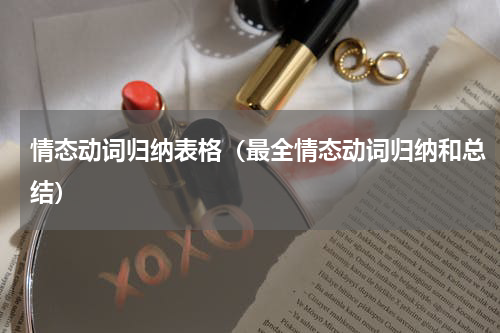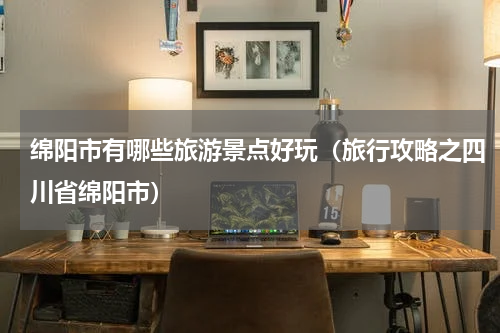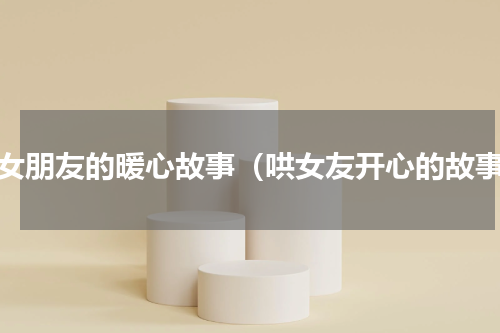最全情态动词归纳和总结一:什么是情态动词?情态动词表示说话人对某一动作或状态的态度二:情态动词的特点1)有一定词义;2)不受主语人称和数的变化影响;3)与主要动词的原形(或称不带to的不定式)一起构成谓语(除oughtto。

一:什么是情态动词?
情态动词表示说话人对某一动作或状态的态度。
二:情态动词的特点
1)有一定词义;
2)不受主语人称和数的变化影响;
3)与主要动词的原形(或称不带to的不定式)一起构成谓语(除ought to作固定词组看待)。
三:情态动词的基本用法
1. can (Could)
1)表示能力,could主要指过去时间。
Two eyes can see more than one. 两只眼比一只眼看得清。
Could the girl read before she went to school? 这女孩上学前能识字吗?
2)表示可能(理论上或是逻辑判断上)。
The temperature can fall to –60℃, that is 60℃ below freezing.
气温可降至—60℃,也就是零下60℃。
He can’t (couldn’t) have enough money for a new car. 他不可能有足够的钱买新车。
You mustn't smoke while you're walking around in the wood. You could start a fire.
在林子里走时勿吸烟,那样可能会引起火灾。
3)表示允许。
Can I have a look at your new pen? 我可以看一看你的新钢笔吗?
He asked whether he could take the book out of the reading-room.
他问他可不可以把书带出阅览室。
4)表惊异、怀疑、不相信等态度。主要用于否定句、疑问句或感叹句中。
Where can (could) they have gone to? 他们会去哪儿了呢?
He can’t (couldn’t) be over sixty. 他不可能超过六十岁。
How can you be so careless? 你怎么这么粗心?
5)比较委婉客气地提出问题或陈述看法。
Can (Could) you lend me a hand? 帮我一把好吗?
I’m afraid we couldn’t give you an answer today. 恐怕我们今天不能给你答复。'
2. may (might)
1)表允许,might可以指过去时间,也可指现在时间,语气更委婉。
You may take whatever you like. 你喜欢什么就拿什么。
He told me that I might smoke in the room. 他告诉我可以在房间里抽烟。
May (Might) I ask for a photo of your baby? 我可以要一张你宝宝的照片吗?
在回答以may引起的问句时,多避免用这个词,而用其它方式,如Yes, please. / Certainly.
/ Please don’t ./ You’d better not. / No, you mustn’t.等,以免显得太严峻或不客气。
2)表可能(事实上)。可以指过去时间,也可以指现在时间,但语气更加不肯定。
He may be at home. 他可能在家。
She may not know about it. 她可能不知道这件事。
He was afraid they might not agree with him. 他担心他们可能不同意他的意见。
They might be having a meeting, but I’m not sure. 他们有可能在开会,不过我不肯定。
3. must
1)表示义务。意为“必须”(主观意志)。
We must do everything step by step. 我们一切都必须循序渐进地做。
You mustn’t talk to her like that. 你不可能那样对她说话。
--Must we hand in our exercise—books now? 我们现在就要交练习本吗?
--No, you needn’t. / No, you don’t have to. 不必。(这种情况下,一般不用mustn’t)
2)表示揣测。意为“想必、准是、一定”等,只用于肯定句。
He must be ill. He looks so pale. 他准是病了。他的脸色苍白。
She’s wearing a diamond necklace. She must have a lot of money. 她戴着钻石项链,一定很有钱。
4. shall
1)表征询意见,用于第一、第三人称疑问句。
Shall I get you some tea? 我给你点茶好吗?
Shall the boy wait outside? 让那男孩在外面等吗?
What shall we do this evening? 我们今晚做什么?
2)表说话人的意愿,有“命令、允诺、警告、决心”等意思,用于第二、第三人称陈述句。
You shall do as I say. 按我说的做。(命令)
You shall have my answer tomorrow. 你明天可以得到我的答复。(允诺)
He shall be sorry for it one day, I tell you. 有一天他会后悔的,我告诉你。(警告)
Nothing shall stop us from carrying out the plan. 什么也不能阻止我们执行这项计划。(决心)
5. will
1)表意愿,用于各种人称陈述句。
I will do anything for you. 我愿为你做任何事。
None is so blind as those who won’t see. 不愿看的人眼最瞎。
If you will read the book, I’ll lend it to you. 如果你愿意读这本书,我会把它借给你。
2)表请求,用于疑问句。
Will you close the window? It’s a bit cold. 请你把窗户关上好吗?有点冷。
Won’t you drink some more coffee? 再来一点咖啡好吗?
3)表示某种倾向或习惯性动作。
Fish will die out of water. 鱼离开水就不能活。
The door won’t open. 这门打不开。
The boy will sit there hour after hour looking at the traffic go by.
那男孩常常坐在那里好几个钟点,看着车辆行人通过。
6. should
1)表义务。意为“应该”(某件事宜于做),用于各种人称。
You should be polite to your teachers. 你对老师应该有礼貌。
You shouldn’t waste any time. 你不应该浪费时间。
2)表推测,意为“想必一定、照说应该、估计”等。
The film should be very good as it is starring first-class actors.
这部新电影是一流演员主演的,估计拍得很好。
They should be home by now. 照说他们现在应当已经到家了。
7.would
1)表意愿。
They would not let him in because he was poorly dressed. 他们不让他进去因为他衣着破旧。
I said I would do anything for you. 我说过我愿意为你做任何事。
2)表委婉地提出请求、建议或看法。
Would you like another glass of beer? 再来杯啤酒好吗?
Would you mind cleaning the window? 请把窗户擦一下好吗?
They wouldn’t have anything against it. 他们不会有什么反对意见。
3)表过去反复发生的动作或过去的一种倾向。
Every time she was in trouble, she would go to him for help.
她每遇到麻烦都会向她求助。他告诉我盒子打不开了。
8. ought to
1)表义务,意为“应该”(因责任、义务等该做),口气比should稍重。
You are his father. You ought to take care of him. 你是他父亲,应当管他。
You oughtn’t to smoke so much. 你不应该抽这么多烟。
2)表推测,暗含很大的可能,语气较弱。
Han Mei ought to know his telephone number. 韩梅该知道他的电话号码。
There’s a fine sunset; it ought to be a fine day tomorrow. 今天有晚霞,明天应该是个好天。
9. used to
表示过去的习惯动作或状态,现在不复发生或存在。疑问式和否定式有两种。
He used to live in the countryside, but now he lives in the city.他过去住在乡下,现在住在城里。
There used to be a building at the street corner, but it has been pulled down.
街道拐角处过去有座楼房,现在拆了。
I usedn’t (didn’t use) to smoke. 我过去不抽烟。
Used you (Did you use) to go to school on foot? 你过去常步行去学校吗?
四:
need和dare的用法
need和dare既可用作情态动词,也可用作实义动词。用作情态动词时,主要用于否定句和疑问句。用作实义动词时,可用于各种句式。
1):用作情态动词
--Need I come? --Yes, you must. --我需要来吗? --需要。
You needn’t telephone him now. 你现在不必打电话给他。
I don’t think you need worry. 我想你不必发愁。
She dare not go out alone at night. 她晚上不敢一个人出去。
How dare you say I’m unfair? 你竟敢说我不公平?
Not one of them dared mention this. 他们谁也不敢提这件事。
2):.用作实义动词
You don’t need to do it yourself. 你不必亲自做这件事。
We need to tell them the news. 我们需要把这消息告诉他们。
The table needs painting (to be painted.). 桌子需要油漆一下。
We should dare to give our own opinion. 我们要敢于提出自己的观点。
He did not dare (to) look up. 他不敢抬头看。
I dare day he’ll come again. 我想他会再来的。
(I dare say…为固定习语)
五:情态动词后跟完成式和进行式的用法
1.情态动词后跟完成式,表“应当已经……”,“想必已经……”,“本来可以……”等意。
I should have finished the work earlier. 我应当早一点完成这项工作的。
He isn’t here. He must have missed the train. 他还未到,一定是没赶上火车。
Where can (could) he have gone? 他能到那里去了呢?
You may (might) have read about it. 你可能在报上已经读到这件事了。
You could (might) have been more careful. 你本来可以更细心的。
He needn’t have worried about it. 他本不必为此事担心。
There was a lot of fun at yesterday's party. You ought to have come, but why didn't you?
昨天的聚会非常有意思。你本应该来,为何不来呢?
2. 情态动词后跟进行式,表示“想必正在……”,“可能正在……”,“应当正在”等意。
It’s twelve o’clock. They must be having lunch. 现在是十二点。他们一定正在吃饭。
They may be discussing this problem. 他们可能正在论讨这个问题。
He can’t be telling the truth. 他说的不可能是真话。
She shouldn’t be working like that. She’s still so weak. 她不应当那样干,她身体仍那么弱。
六:几组词的辨异
1. can 和be able to
1)情态动词can只有两种时态形式,现在式can和过去式could,而be able to有多种时态形式。
Mary can play the piano. She has been able to play it since she was 5.
玛丽会弹钢琴。她五岁起就会弹了。
2)用在过去时中,could经常表示能够做某事,事实上不一定去做,而was∕were able to则表示“过去做成了某事”。在否定句中两者可通用。
He couldm across the English Channel. But he didn't feel like it that day.
他能游过英吉利海峡,但那天他不想游。
Yesterday I was able to get home before the heavy rain. 昨天我在下大雨前赶到了家里。
2. must和 have to
must表示主观意志,而have to表示由于客观因素不得不做某事。must没有过去式,除在间接引语中可用于表示过去时间,在直接引语中表示过去时间应该用had to代替。
I told her that she must give up smoking. 我叫她必须戒烟。
We had to get everything ready that night. 我们那晚得把一切准备就绪。
3. would和used to
1)used to表示过去与现在或过去某时与后来的情况有不同,而would只表过去的情况。
People used to think that the earth was flat.
过去人们认为地球是平的。(现在人们不这么认为。)
She would go out for a walk in the morning when she was in the country.
在乡下时,她总是在早晨去散会儿步。(可能现在仍有散步的习惯。)
2)used to可表示过去的习惯动作和经常的情况,而would只表示过去的习惯动作。
He used to ∕would smoke while writing. 过去他写东西时常抽烟。
She used to be fat. 她过去很胖。
熟能生巧环节,后方有答案:1. I __________ you, because I thought I must be wrong.
A. dare not ask B. dare not to ask C. dare not asking D. dare to not ask
2. There __________ some flowers in the garden.
A. were used to be B. used to be C. uses to be D. used to be having
3. "__________ I take it out?" "I'm sorry, you __________."
A. Could ...couldn't B. Might...might not C. Could...can D. May...can't
4. You were stupid to climb the tree. You __________ hurt yourself.
A. may B. might C. will D. might have
5. You __________ those letters. Why didn't you ?
A. should post B. should have posted C. must have posted D. ought to post.
6. All the lights are on, the Smiths __________ up.
A. must get B. is getting C. must be getting D. would get
7. He __________ lead a horse to the water but he __________ not make it drink.
A. will...can B. may...can C. may...dares D. dare...can
8. "Need we do this job now?" "Yes, __________."
A. you need B. you should C. you must D. you can
9. __________ to have lunch with us today?
A. Do you likes B. Would you like C. Will you liked D. Have you liked
10. He said that you __________ watch TV all the evening if you wished.
A. may B. must C. can D. might
11. -Is John coming by train? --He should, but he __________ not. He likes driving his car.
A. must B. can C. need D. may
12. Peter __________ come with us tonight, but he isn't very sure yet.
A. must B. can C. may D. will
13. Michael __________ be a policeman, for he's much too short.
A. needn't B. can't C. shouldn't D. won't
14. I thought you __________ be hungry, so I have brought you some cakes.
A. may B. might C. can D. could
15. I wonder how he __________ that to the teacher.
A. dare to say B. dare saying C. not dare say D. dared say
16. Come on! We __________ hurry because there isn't much time left.
A. may B. must C. can D. need
17. Amy did best in the English test. She __________ hard last week.
A. must have working B. should have worked C. should work D. must work
18. The fire spread through the hotel very quickly but everyone __________ get out.
A. had to B. would C. could D. was able to
19. ---I stayed at a hotel while in New York. ---Oh, did you? You __________ with Barbara.
A. could have stayed B. could stay C. would stay D. must have stayed
20. It's nearly seven o'clock. Jack __________ be here at any moment.
A. must B. need C. should D. can
参考答案:
1.A2.B3.D4.D5.B6.C7.B8.C9.B10.D11.D12.C13.B14.B15.D16.B17.A18.D19.A20.C










